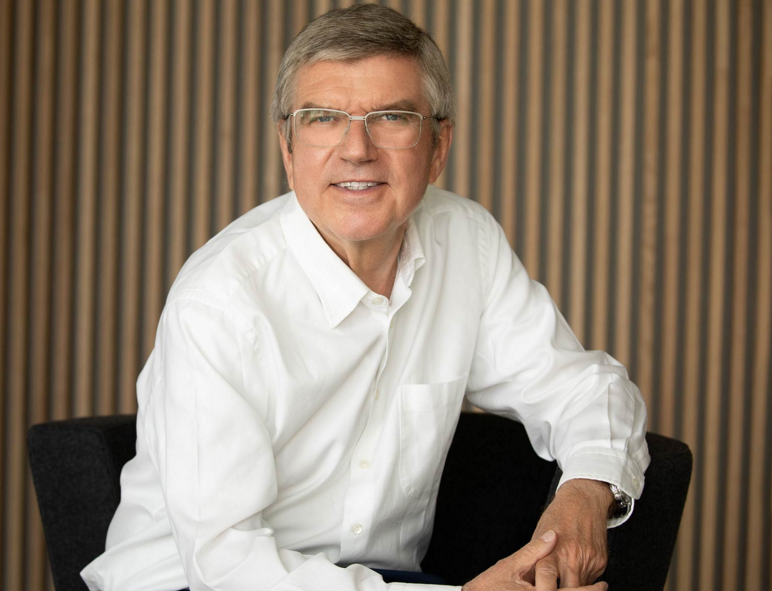Register
to get articles and more to your inbox
News & insights
Archive
Directory
IOC President Bach Warns Sporting Organisations To Brace For Post COVID-19 Budget Cuts and Event Consolidation

International Olympic Committee (IOC) president Thomas Bach has urged the various sporting organisations under the Olympic umbrella to brace themselves for changes in a post COVID-19 world.
Writing in a lengthy open letter titled ‘Olympism and Corona’, the German addressed the potential social, economic and political impacts of the COVID-19 outbreak on sport, outlining three possible scenarios and a range of repercussions that might arise as a result of the pandemic.
‘At this moment, nobody knows what the realities of the post-coronavirus world will look like,’ Bach wrote. ‘What is clear, however, is that probably none of us will be able to sustain every single initiative or event that we were planning before this crisis hit.
‘We will all need to take a close look at the scope of some of our activities and make the necessary adjustments to the new realities. In this context, the IOC administration is reviewing the IOC’s budget and priorities. This review will shortly be presented to the IOC Executive Board for discussion and approval.’
Addressing last month’s landmark postponement of the Tokyo 2020 Olympic and Paralympic Games, Bach reiterated his prior comments that the IOC would ‘shoulder several hundred million US dollars’ in additional costs due to the ‘immense task’ of rescheduling the event for 2021 – although he noted ‘it is too early to give an exact figure’.
‘This is why we also need to look into and review all the services that we provide for these postponed Games,’ he added.
Bach also hinted that the rise of sporting events may be unsustainable and unfeasible in future, citing climate change as a factor in the possible scaling back of the increasingly crowded international calendar.
‘For the Olympic Movement as a whole, we may also have to look more closely into the proliferation of sports events, as we already discussed at previous Olympic Summits,’ he wrote. ‘The financial pressure on all the stakeholders, including NOCs, IFs and Organising Committees, may require more consolidation in this respect.’
In a bid to prepare for the challenges to come, Bach went on to depict three post COVID-19 scenarios, the first of which could see society continue ‘much like before the crisis’.
‘With this scenario, the current crisis would most likely exacerbate already existing social and economic inequalities,’ he suggested. ‘Too many inequalities and inefficiencies in too many societies have been laid bare in this crisis.’
The second scenario ‘is largely characterised by society and nations driven even more by egoism and self-interest’, Bach said, adding: ‘This scenario could lead to even more divided societies, to more inequalities, with all the social risks this entails for the political systems.
‘It would lead to a dramatic worsening of international relations, protectionism and political confrontation in all aspects of human life: the economy, sport, culture, humanitarian aid, everything would become a political tool in this political confrontation.’
In Bach’s third, more optimistic scenario, post-pandemic society would be defined by ‘more solidarity and international cooperation’, with everyone sharing in any hardships experienced as a result of the crisis.
‘This scenario would mean that we have understood that we cannot predict or shape the future state of the world by relying solely on technology, and that no individual, no government, no nation can solve the big problems of humanity on their own,’ Bach went on. ‘This would lead to efforts to share the hardship of the crisis in a fair way among people and nations, and to strengthen a fair and cooperative world order.’
Bach also cautioned against any efforts to tackle COVID-19 challenges ‘by blindly following computer algorithms based on data stemming from the past, like from the financial crisis in 2008’. According to the former fencer, ‘this crisis is very different’ and is one which ‘will require human excellence, experience and creativity’ to overcome.
With many rights holders, event organisers and brands diving to competitive esports in the absence of live sport, Bach also encouraged governing bodies to ‘even more urgently’ consider ‘how to govern electronic and virtual forms of their sport and explore opportunities with game publishers’, which was one declaration made during the IOC’s summit last December.
‘We shall also have to consider what social distancing may mean for our relations with esports,’ he wrote. ‘Some IFs have already been very creative by organising remote competitions. We should further strengthen these moves and encourage our joint working group to address this new challenge and opportunity.’
In conclusion, Bach said he hopes his ideas would ‘contribute to a comprehensive discussion’ held under the auspices of the IOC and its executive board, as well as ‘a wide-ranging consultation’ with all Olympic stakeholders.
‘Let us take this opportunity in a way of unity and creativity to emerge from this crisis even stronger than before,’ the German opined. ‘The post-coronavirus world will need sport, and we are ready to contribute to shaping it with our Olympic values.’








